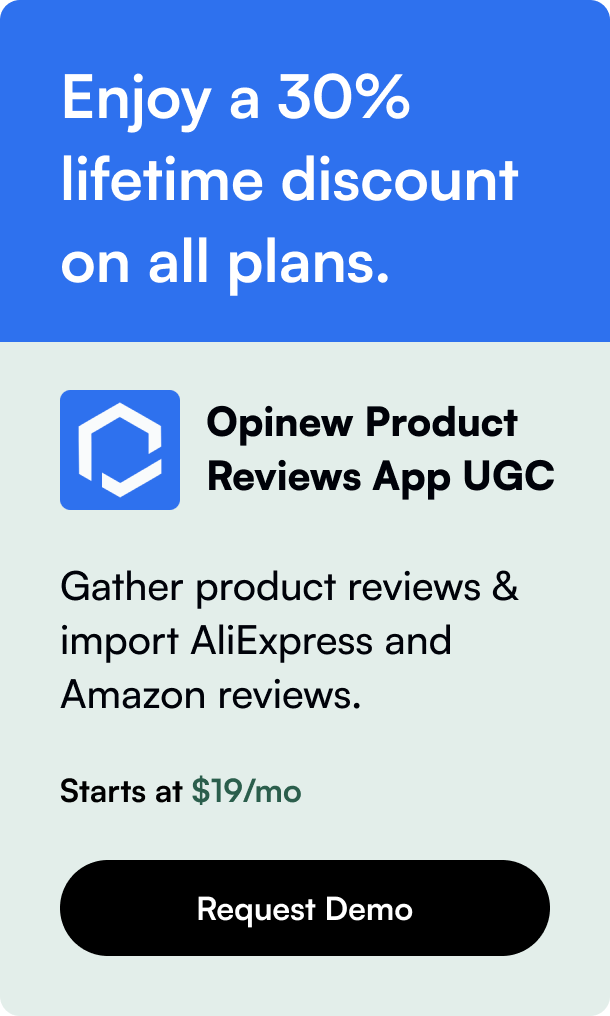Table of Contents
- Introduction
- The Battleground of E-commerce Platforms
- Shopify: Your Gateway to Global Retail
- Zoey: The Power of B2B E-commerce
- The Decision Matrix
- Conclusion
- FAQ Section
Introduction
Imagine this: You're standing at a crossroads; one path leads towards Zoey while the other turns towards Shopify. Both avenues promise the allure of flourishing digital marketplaces, but as a business owner, making the right decision is quintessential. In this rapidly expanding world of e-commerce, choosing the best platform to set up your online store is crucial for your venture's success. You've probably come across numerous articles comparing Shopify and Zoey, so how does this post stand out? Well, we delve deeper into the nuances, exploring not only features but also how these platforms can directly link to your business growth and goals. Expect to learn, decide, and embark on an e-commerce journey tailored just for your needs.
The Battleground of E-commerce Platforms
Before choosing between Shopify and Zoey, it's fundamental to understand what makes an e-commerce platform worthy. Consider features like customization, ease of use, scalability, security, and – significantly – how these translate to tangible benefits like increased sales, higher customer satisfaction, and long-term business viability. In the digital realm, your store's platform is akin to the foundation of a physical shop; it needs to be strong, adaptable, and aligned with your business strategy.
Shopify: Your Gateway to Global Retail
Shopify is a household name in e-commerce and for good reason. It's an all-in-one solution designed to accommodate businesses of all sizes. Known for its user-friendly interface, vast app marketplace, and reliable customer support, Shopify simplifies the leap into online retail.
Wide-Reaching Sales Channels
One of Shopify's standout features is its multi-channel integration. From social media to online marketplaces, it ensures that your products are showcased where your customers are spending their time online. This capability becomes a clear advantage in digital marketing, allowing businesses to capture a wider audience with ease.
Boundless Customization and Apps
Shopify's robust theme store and extensive app marketplace are treasure troves for business owners aiming to tailor their storefront. The platform allows easy customization without deep technical know-how, granting you the power to create a unique online presence that speaks truly of your brand.
Reliability and Growth
Reliability translates to uptime, load times, and security – areas where Shopify excels. The platform not only hosts your shop but also ensures it's always ready for customers, scaling with your business growth without skipping a beat.
Zoey: The Power of B2B E-commerce
While Shopify provides a broad canvas, Zoey comes through with a laser focus on B2B and wholesale transactions. Recognized for its advanced B2B features, it fills the niche for businesses searching for a platform that understands the complexities of wholesale, big orders, and repeat purchases often missed by generalist platforms.
Advanced B2B Functionalities
Zoey sets itself apart by catering extensively to the B2B audience. It offers customizable price lists, bulk ordering capabilities, and complex discount structures, focusing on the tools B2B sellers need to seal the deals effectively and manage accounts.
Automation and Integration
Zoey excels in automating processes that can take up precious time in B2B dealings. It also facilitates integration with key business systems like ERPs, ensuring smoother operations across your company's landscape.
A Premium Package
Zoey is designed as a premium offering. With its sophisticated capabilities and targeted tools, it aims to streamline the B2B buying and selling experience, positing itself as an excellent choice for those ready to invest in a high-end e-commerce ecosystem.
The Decision Matrix
Debating between Shopify and Zoey should now transition from a question of 'Which is better?' to 'Which is better for my business model?' Take stock of your inventory, sales strategy, customer base, and long-term plans, since these factors should guide your platform choice.
Small to mid-sized businesses with a B2C focus might find Shopify's approachable pricing and extensive support network ideal. Conversely, businesses with a primary B2B orientation, handling complex transactions and requiring advanced wholesale features, would appreciate Zoey's niche capabilities.
Conclusion
As we wrap up this exploration of Shopify vs Zoey, the crux lies in alignment – ensure the platform you select aligns with your business's intricacies and aspirations. Through thoughtful deliberation on features, customer engagement, scalability, and operational needs, your e-commerce journey can lead to lucrative destinations, whether that path is paved by Shopify or Zoey.
FAQ Section
Q: Can Shopify handle B2B transactions as effectively as Zoey? A: Shopify is primarily B2C-oriented but offers B2B features via apps or Shopify Plus for larger enterprises. However, Zoey specializes in B2B and may be suitable for businesses looking for native, comprehensive B2B features.
Q: Is Zoey recommended for small businesses or start-ups? A: Zoey may not be the best fit for small businesses or start-ups due to its complexity and premium cost. It's designed for businesses that require advanced B2B features that outscale the regular offering of platforms like Shopify.
Q: Can I migrate from Shopify to Zoey if my business model changes? A: Yes, migration between platforms is possible, although it involves strategic planning, data transfer, and setting up corresponding functionalities on the new platform.
Q: Does Shopify provide good customer support for first-time online retail owners? A: Shopify is known for its excellent customer support, comprehensive documentation, and active community forums that are valuable resources for new online store owners.
Q: How important are third-party apps for extending the capabilities of these platforms? A: Third-party apps are essential for enhancing platform functionalities to meet specific business needs. Shopify offers a vast marketplace of apps, while Zoey, catering to a distinct technical clientele, may have more specialized, built-in features.








